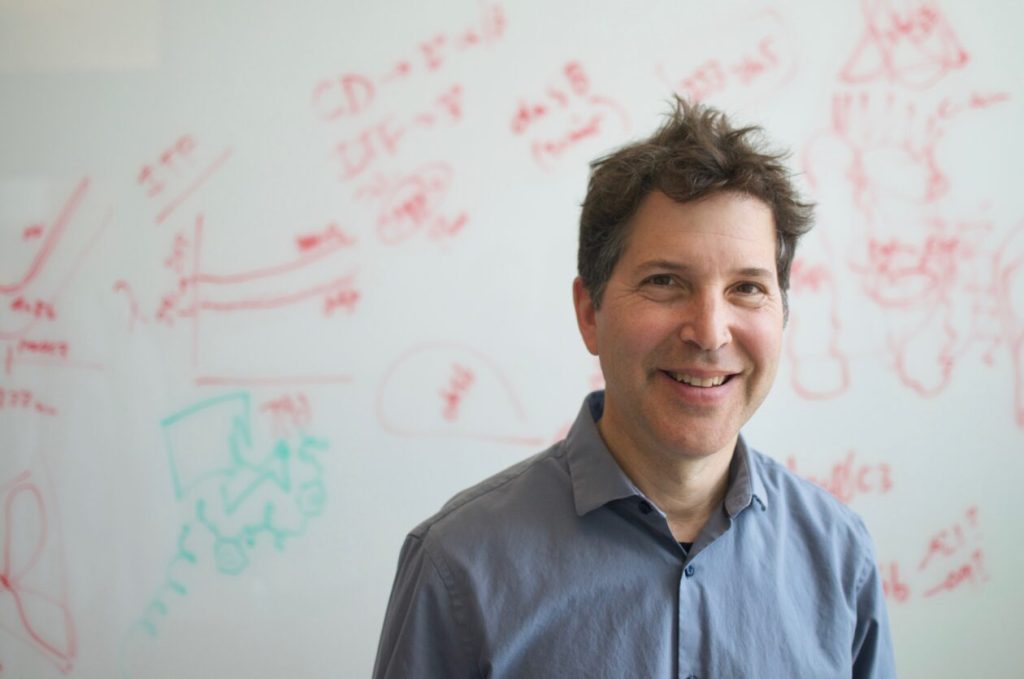David Baker, a University of Washington professor and recent recipient of the Nobel Prize in Chemistry, is at the forefront of protein design, a revolutionary field transforming medicine, materials science, and more. His work centers on crafting novel proteins with specific shapes and functions, akin to an architect designing a building but at the molecular level. This innovative approach harnesses cutting-edge computational tools to mimic and surpass nature’s ingenious designs, enabling scientists to tackle real-world challenges like disease and pollution. Baker’s groundbreaking research has not only earned him prestigious recognition but also catalyzed the growth of Seattle’s biotech hub, with over 20 startups emerging from his lab, the Institute for Protein Design (IPD). These companies, nurtured within the region’s vibrant tech ecosystem, are translating scientific breakthroughs into tangible products and therapies, further solidifying Seattle’s position as a leader in biotechnology.
The core of protein design lies in understanding and manipulating the fundamental building blocks of life. Proteins, the workhorses of the cellular world, are responsible for a vast array of functions, from tissue repair to chemical reactions. By precisely defining the sequence of amino acids, the components that make up proteins, Baker and his team can dictate the protein’s intricate three-dimensional structure, which in turn determines its function. This ability to design proteins from scratch opens doors to creating bespoke molecules tailored for specific tasks, whether it’s developing a new drug or engineering a protein to break down plastic pollutants. Traditionally, discovering and characterizing proteins was a laborious and time-consuming process. However, recent advancements in artificial intelligence, particularly in the realm of generative AI, are revolutionizing protein design, providing scientists with powerful tools to accelerate discovery.
The same AI breakthroughs powering tools like ChatGPT are now being harnessed to design proteins with unprecedented speed and accuracy. Software developed in Baker’s lab, such as RFdiffusion and ProteinMPNN, along with other tools like Google’s AlphaFold, are not only more powerful than their predecessors but also more accessible to researchers without specialized computational expertise. This democratization of technology empowers a wider range of scientists to contribute to protein design, further accelerating the pace of innovation. While these tools don’t magically produce new drugs, they significantly streamline the process of designing proteins with specific biochemical functions, making the path from concept to creation considerably shorter.
Baker’s contributions extend beyond academic research and encompass real-world applications. His work has been instrumental in developing the world’s first computationally designed protein medicine, a groundbreaking COVID-19 vaccine pioneered by colleagues at UW Medicine. He holds over 100 patents, a testament to his prolific contributions to the field. Furthermore, several IPD spinouts have been acquired, demonstrating the commercial viability and impact of the technologies developed in his lab. The success of these ventures is not only a testament to Baker’s scientific acumen but also to the fertile ground for innovation provided by the Seattle biotech ecosystem.
A key ingredient in translating groundbreaking research into tangible outcomes is the collaborative and dynamic environment fostered within Baker’s lab. He attributes much of his success to the “brilliant, super smart, energetic people who come here early in their career from all over the world.” This influx of talent from diverse backgrounds creates a vibrant intellectual hub, driving innovation and pushing the boundaries of scientific discovery. The international nature of his team also contributes to the entrepreneurial spirit, with many researchers staying in the U.S. to launch startups based on their work at IPD. This international collaboration is a crucial driver of the rapid advancements in protein design.
David Baker shares the 2023 Nobel Prize in Chemistry with Demis Hassabis and John Jumper of Google DeepMind, recognizing their parallel contributions to computational protein structure prediction. Their combined efforts have revolutionized the field, enabling scientists to decipher the intricate shapes of proteins with remarkable accuracy and speed. This ability to predict protein structure is a critical complement to Baker’s work in protein design, providing a powerful toolkit for understanding and manipulating the molecular machinery of life. Together, these scientists have paved the way for a new era of biological engineering, where custom-designed proteins can address some of the world’s most pressing challenges. As Baker continues his research, fueled by the excitement of scientific discovery and the potential to positively impact society, the future of protein design appears brighter than ever.


